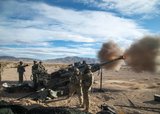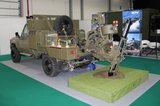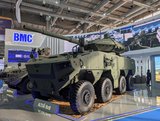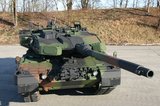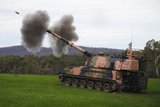Sweden signs framework agreement for Carl-Gustaf M4
Saab has signed a framework agreement with the Swedish Defence Materiel Administration (FMV) to provide the Swedish armed forces with the Carl-Gustaf M4 shoulder-launched weapon.
This agreement will allow FMV to place orders during a ten-year period, and an initial order worth some SEK330 million has been placed with deliveries due to be carried out during 2020-2023.
The new version of the weapon, Carl-Gustaf M4 was launched in 2014, and has an improved and lightweight design weighing less than 7kg, which offers mobility improvements.
In 2018, FMV placed the first order for Sweden, and the framework agreement recently signed is the beginning of larger investments in the system, which will eventually lead to the entire Swedish armed forces being equipped with the Carl-Gustaf M4 weapon.
In addition, the Estonian and Latvian armed forces are also allowed to purchase under this framework agreement.
Since the launch in 2014, Saab has signed contracts with eleven different nations for the Carl-Gustaf M4.
Related Equipment in Defence Insight
More from Land Warfare
-
![World Defense Show 2026: Large vehicles and counter-drone systems take the limelight]()
World Defense Show 2026: Large vehicles and counter-drone systems take the limelight
Visitors who attended the first World Defense Show four years ago continue to speak of the difficulties they faced with poor facilities and power problems. This year’s event emphasised its status as one of the major defence expositions and as a place where regional players and those less welcome at other shows could take centre stage.
-
![MKJ Warrior Series — The Nett Warrior Qualified Connector for Today’s Soldier Systems]()
MKJ Warrior Series — The Nett Warrior Qualified Connector for Today’s Soldier Systems
ITT Cannon’s MKJ Warrior connectors are designed for the harshest environments, delivering mission critical comms, navigation and USB data/power.
-
![Active vehicle protection comes to the forefront as Trophy and Iron Fist secure contracts]()
Active vehicle protection comes to the forefront as Trophy and Iron Fist secure contracts
Experience on the battlefield is accelerating the adoption of active protection systems as technologies continue to evolve to reflect shifting global defence needs.
-
![World Defense Show 2026: Hanwha increases Middle East presence and reveals Tigon 6x6 sale]()
World Defense Show 2026: Hanwha increases Middle East presence and reveals Tigon 6x6 sale
Shephard sat down with Hanwha Middle East and Africa president Sung Il at World Defense Show 2026 to hear about the company’s plans for the region and how it plans to use local industry success to win deals.









